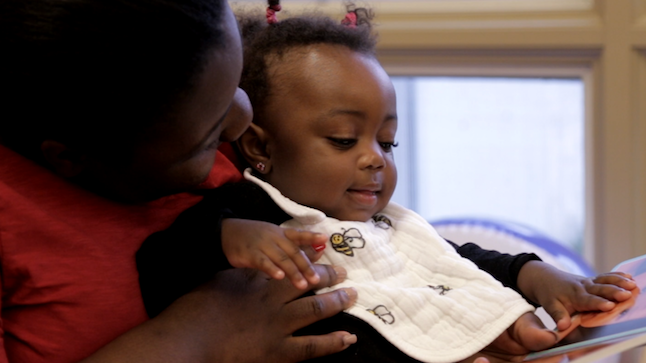Series: About the Collaborative
Addressing Babies and Toddlers, Innovative Math Project Enters New Phase

Does math learning begin in infancy? In 2014, the Collaborative partnered with The Ounce of Prevention Fund to launch Math All Around Me (MAAM), a program that explored this very question. It includes professional development and research components aimed at identifying math concepts children age 3 and younger begin to understand, called “Precursor Concepts”. Receiving an additional three-year grant from the Pritzker Children’s Initiative along with a previous grant from CME Group, this project is entering the next phase.
During this second phase, the Collaborative will provide professional development to 50 educators in the Chicago area. Learning labs and coaching will help clarify what mathematical thinking looks like in infants and toddlers and how they can support it in the classroom.
If we change how educators and caregivers… think about math and help them become aware of how they can interact with children in ways that foster mathematical thinking, that’s where the real impact lies.
– Professor Mary Hynes-Berry
Also being introduced are new ways of conducting evaluations that demonstrates the program’s impact on teachers and children. Acquiring data and measuring the program’s effectiveness will help establish a greater understanding of early math learning and potentially lead to the widespread use of teaching techniques that further mathematical thinking in infants and toddlers and lead to greater academic achievement as children get older.
“Nobody else is doing this work focused on children age 3 and younger,” says Mary Hynes-Berry, Ph.D., content leader for MAAM and senior instructor at Erikson. “There is existing research that focuses on cognitive development and the formation of early math thinking, but we are the only ones researching how adults can foster this type of thinking in young children.”
In the future, the Collaborative hopes to use its findings from phase two of MAAM as the basis for developing materials for educators that are focused on math learning for children from birth to age 3. These materials would complement the Collaborative’s existing materials that focus on children age 3 to 8, helping establish an early math learning trajectory through all stages of early childhood.
“If we change how educators and caregivers working with infants and toddlers think about math and help them become aware of how they can interact with children in ways that foster mathematical thinking, that’s where the real impact lies,” Dr. Hynes-Berry says.